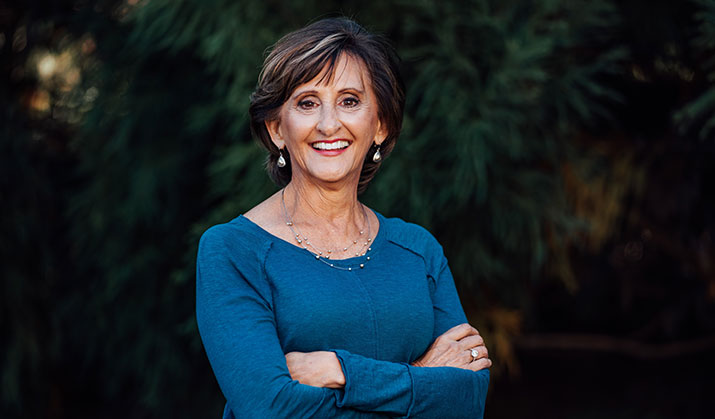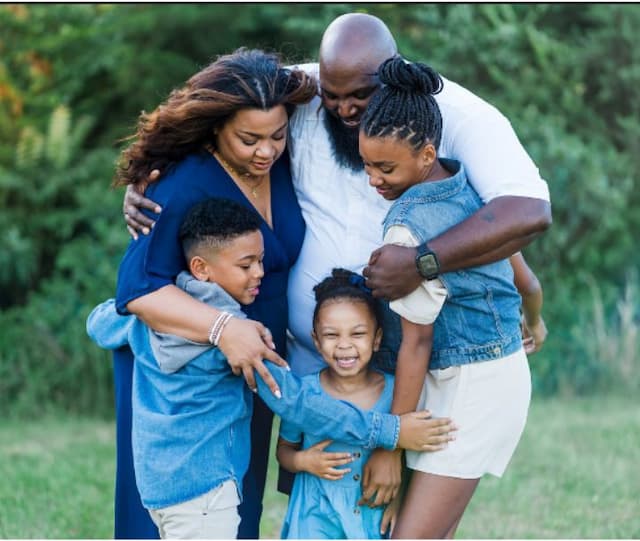Chick-fil-a's Trudy Cathy White on Building a Family Legacy That Will Last for Generations

Trudy Cathy White
Building a lasting legacy has been a pursuit of Trudy Cathy White’s for her entire adult life. As the daughter of highly successful Chick-fil-a founder Truett Cathy, Trudy knows first hand the meaningful impact that consistency and quality can have, not only in a business but also in one’s personal life.
In her latest book, A Legacy That Lasts: Preserving and Transferring Your Family Values, Trudy identifies the positive, bedrock qualities needed for a family to not only flourish in this generation but to solidify positive family values for the generations to come.
Focusing on faith, family, integrity, generosity, and gratitude, Trudy encourages readers to be intentional about discovering what is important to your family and to provide clarity on how to reclaim the values that will allow it to prosper.
I recently sat down with Trudy to discuss why it is important for every family to have a set of enduring and indispensible values, being intentional about leaving a lasting legacy, and a few practical tips for helping people to identify what is of the utmost importance for their family’s future in this unforgiving world.
We are all impacted by the spoken and unspoken values in our families, and the world around us is impacted by extension. Why is it important to have a set of authentic, upstanding values, that everyone lives by and adheres to?
I think what’s really important to realize is that every person or family has values regardless of whether they’ve really been very intentional about identifying them or even communicating them. We just have to live a couple of days and we realize that we choose to do the things that matter the most to us. It is the values, guidelines, or principles, whether we’ve defined them or not. What defines you is just that they help us with our decision making process. But when we really take the time to ask these critical questions like what really matters to me? And then we say, are these things that I identify as mattering to me? Are those the things that are driving the decisions that I’m making in life?
And then a third question might be, what values do other people see in our lives? I think that’s an important question because oftentimes we may think this is something that I value. This is a guideline, this is important to me. But if other people aren’t seeing you live that out in your life, maybe you need to stop and make sure there’s a check there in your system. Sometimes we can be a bit complacent. We may say family’s really important to us, but if we don’t ever spend time with our family and people don’t notice that we carve out time for our family, then obviously there’s a disconnect in what we think. So, I think values are critical and very important to actually take the time to identify so that you can preserve them and live them out.
This book kind of started from the idea of when my dad passed away. He was 93 years old. This was 2014. And then 10 months later, my mom passed away. She was 92 years old. And so, within 10 months, I lost both my mom and dad. And then being the only daughter in the family, I was left to kind of go through all their things in their house. And I realized that of course, they left everything. They didn’t take anything with them, and they lived in that house for 57 years. But at the end of the day, the thing they left of most value to our family was their legacy. And your legacy is simply the life that you’re living. The legacy we leave in is the life we’re living right now. And so, I think that’s what motivates and drives us to understand that it’s really important in the choices that I’m making day to day, because this is the legacy that I’m going to leave.
In your book, you write about people being intentional about their core values and you offer guidance to those seeking to take an active role in the legacy they will leave behind. From your perspective, what does that look like?
I think of it in several ways. There’s a verse in 3 John that says, “I have no greater joy than to see that my children are walking in the truth of God’s Word.” When I think about understanding my values, and what’s important to me, I think about not living this life for myself. I’m actually blazing a trail for those who are coming behind me, because that’s somewhat what has happened with my own generational shift, losing a mom and dad and seeing how their values have been transferred to me. And then seeing how those values are transferred into our own family business. When I realize that I’m not living this life for myself, and I’m leaving it for those who are coming behind me, then I want to make sure that I’m able to transfer those really well. It means being able to live out what’s important to me in such a way that it is intentional and it is influential in the people around me.
You write that being values-driven creates guide rails for decision-making and provides emotional anchors in times of struggle along with building blocks for the development of the next generation. What does that look like?
When you’re value driven, it allows you to be selective in the things that you’re going to get involved in. For example, I’m really a ‘yes’ person. I love to say yes. I love to help others. I like to do things for others. I love to please others but I recognize that I can’t do everything that everybody asks of me, even if all of those things are really good things. So when I understand that I’m value driven, it helps me to be a little bit more focused and a little bit more intentional on the things that are really of most importance to me. It allows me to say no to really good things in order to say yes to the better things for what I’m wired for, for what I can do and where I want to invest my time.
But I also believe that by being value driven, it helps to set a foundation for your own convictions. It allows you to be able to make decisions based on that. And it also really helps you to stay very focused and comfortable in being who you are in doing what you can. I’m into a lot of people in my life that I really admire and look up to, but I realize I can’t compete with them. I have to stay very comfortable in my own skin and do what I can do. And so, when you’re value focused, that really helps eliminate that idea of trying to compete with others.
Why is it important that every family define and display family values?
I think taking the time to identify them allows you to have a lot of clarity on your purpose and your priorities. It drives you to live an intentional life. Once you identify your values, then the next step is to kind of write them down so you don’t forget one. Plus, it’s an opportunity for accountability for you. So, sometimes you may think in your mind that these things are important to me but do you need to get really serious about them. And I believe documenting them, writing them down, allows you to live a little bit more focused and purposeful about those, because these values set a real foundation for your convictions. And then, they help you through times of adversity. We all face difficulties in life. We can’t get around those that easily.
In the midst of a crisis is not the time you decide, okay, that’s really important to me right now. But we need to find those values ahead of time rather than in the heat of the moment. When you do this you’re able to know how to go about making decisions. You know who you are, you know what you want, you know how you want to live. I found it to be extremely helpful. I just love staying focused on what I’m doing, defining those and writing them down. It has really helped me.
What exercises do you suggest for helping people identify their family values?
This book is chock full of what I call “value experiences”, opportunities and ways you can go about identifying your values and how you can put them into practice. It’s a very practical resource and helpful tool. When our children were grown, they had very young children. John (Trudy’s husband) and I began to get our adult children and spouses together one weekend out of every year. We’ve done that consistently now for 19 consecutive years. It’s the most important thing we’ve ever done with our adult children. But here’s what we talked about with them. We began to talk about their values. We began to ask them what was really important to them in life? And we pushed them really hard to try to go through some exercises.
And I put these in the book. It pretty much is a whole list of words. And you take that list and you decide what is important and what is totally not important. You kind of weigh out how important those things are. And you kind of sift through words until you come up with maybe four to six that you feel really define the things that are important to you in your life. We do this every year. And so, we encourage our children to identify those and so that as they look into their future, they could begin to really live those out and make those the basis for how they drive their decisions. This is so their children coming up under them will begin to understand what’s really important to mom and dad. In turn, that will then trickle down to their children, the next generation.
After people have read A Legacy That Lasts, as an author, what would you like them to take away from that experience? What’s your greatest hope for the book?
My greatest hope is that people will be inspired to identify their values. Then they would work hard to preserve those through a lot of exercises that I’ve put out in the book. And I hope they will have the joy of seeing those values being transferred to the next generation. As I mentioned earlier, the Bible says in 3 John 1:4, “I have no greater joy than knowing that my children are walking in the truth of God’s Word.” And so, whether you’re a parent, a grandparent, or you work with young people in your church, or perhaps in a business where you’re wanting to impact people around you, any one of these components or seasons of your life, you have an opportunity to have tremendous influence. And to be able to see those things transferred into the lives of other people, it is just tremendous.
So, that’s really my prayer, that every word of this book will be powerful in such a way that you’ll identify your values and then you’ll put value experiences into practice. Here in America, we’ve just come out of the Christmas season. We give gifts, we give things to other people, but things have a way of getting old. They get broken, they wear out. We can’t use them anymore. But what I call “value experiences” create memories and they last a lifetime. And then we can get more focused and more intentional about how we go about life and how we create experiences that will add value to our relationships with the people around you. That is what I really want people to get out of this book.
To Purchase A Legacy That Lasts: Preserving and Transferring Your Family Values:
Don’t Miss Trudy Cathy White on The Crossmap Podcast, Coming February 9th!




